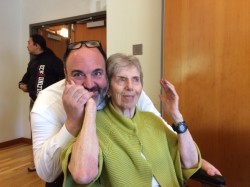New Year, New Connections: Strengthening Family Bonds Through Caregiving
The New Year offers a fresh start. It’s a time to focus on what matters most—our relationships. For families with senior loved ones, caregiving can be an unexpected way to build stronger family bonds. While caregiving may bring challenges, it also presents opportunities for growth...
13 January, 2025





 Andrew Cohen, of
Andrew Cohen, of